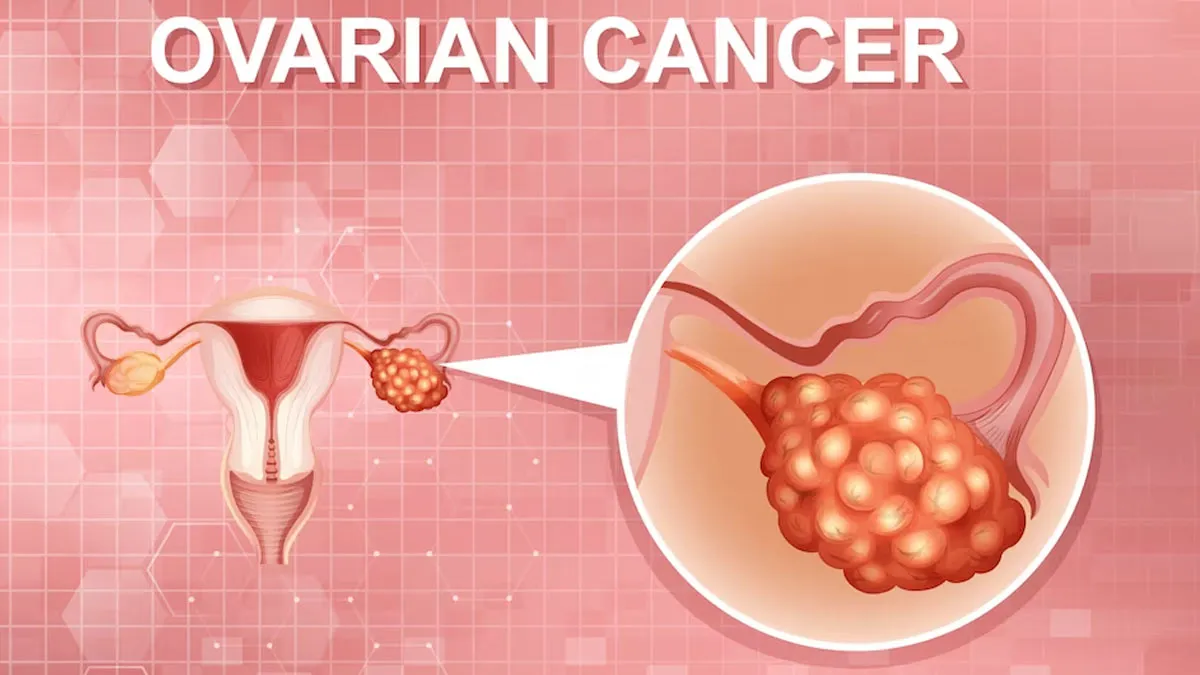
When it comes to cancer, early detection can mean the difference between life and death. But ovarian cancer remains one of the most elusive forms, often going unnoticed until it has progressed to an advanced stage. According to Dr. Anil Thakwani, Consultant and Senior Oncologist at Shardacare–Health City - Noida, recognising the early signs, however vague, can significantly improve survival rates.
Table of Content:-
Why Ovarian Cancer Is Hard to Detect
“Ovarian cancer doesn’t always present clear warning signs early on,” says Dr. Thakwani. “Its symptoms are often mistaken for common gastrointestinal or gynaecological issues, which means many women don't seek help until the disease has advanced.”
Unlike breast or cervical cancer, there is no effective routine screening for ovarian cancer in the general population. This makes being symptom-aware all the more critical.
Overlooked Symptoms
Dr. Thakwani emphasises that certain symptoms, though seemingly benign, can be red flags when they persist. Here are some early, often undetected signs of ovarian cancer:
1. Persistent Bloating
“Chronic bloating that lasts for weeks, not days, is one of the earliest signs,” says Dr. Thakwani. Women often attribute it to diet or menstruation, but if it’s frequent and uncomfortable, it should not be ignored.

Also Read: Did You Know Mangoes Have Gut Health Benefits? Find Out Here
2. Pelvic or Abdominal Pain
Pain or pressure in the lower abdomen that doesn’t go away can be a warning sign. It may feel similar to menstrual cramps, but it is not tied to the cycle.
3. Early Satiety and Appetite Loss
“Ovarian tumours can press against the stomach or bowels, causing women to feel full quickly or lose their appetite,” explains Dr. Thakwani.
4. Frequent Urination
An increased need to urinate, especially when not linked to fluid intake or infection, can occur when tumours press on the bladder.
5. Changes in Bowel Habits
Constipation or other gastrointestinal changes that last for several weeks can be misattributed to dietary factors but may signal something more serious.
6. Fatigue
Persistent, unexplained fatigue is often brushed off, particularly by women juggling multiple roles. However, it can be an early systemic sign of cancer.
7. Unexplained Weight Loss or Gain
Unexpected weight loss or abdominal swelling due to fluid buildup (ascites) can occur even in early stages, though often overlooked.

Also Read: Don't Wait For Symptoms: Understanding Brain Aneurysms And Taking Control Of Your Health
Who Is at Risk?
While ovarian cancer can affect women of all ages, it is more common in women over 50 and those with a family history of breast or ovarian cancer. “Genetic factors like BRCA1 and BRCA2 mutations significantly increase the risk,” Dr. Thakwani notes.
He advises women with such a family history to consult with a genetic counsellor and consider regular check-ups and imaging tests as a preventive measure.
Importance of Listening to Your Body
Dr. Thakwani underscores the importance of self-awareness. “Women know their bodies. If something feels off and it persists, don’t wait. Speak to a healthcare provider,” he urges.
Early-stage ovarian cancer, when detected, is highly treatable. The key is not dismissing symptoms or waiting for them to worsen.
Bottomline
Though ovarian cancer can be silent, it doesn’t mean it's undetectable. Being proactive about your health, recognising subtle changes, and advocating for timely medical advice can make a life-saving difference.
[Disclaimer: If you experience any of the symptoms mentioned above for more than two to three weeks, consult your doctor. Early detection saves lives.]
Also watch this video
How we keep this article up to date:
We work with experts and keep a close eye on the latest in health and wellness. Whenever there is a new research or helpful information, we update our articles with accurate and useful advice.
Current Version
